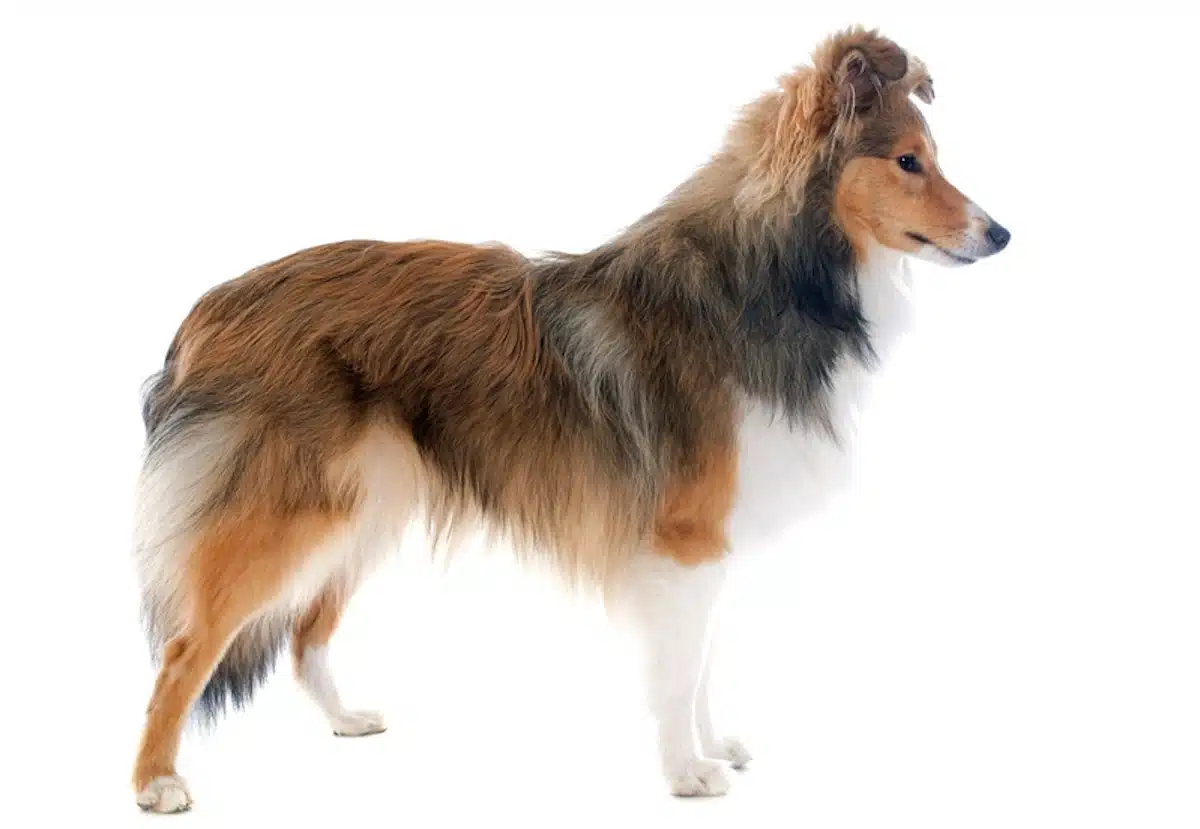Shetland Sheepdog: An Intelligent and Loyal Herding Breed
🐶 Introduction
Shetland Sheepdogs (Shelties) are intelligent, agile, and affectionate members of the herding group. Known for their striking resemblance to the Rough Collie, these smaller yet highly capable dogs excel in obedience, agility, and companionship. In this detailed guide, we’ll explore the history, temperament, care, training, and health of the Shetland Sheepdog to help you determine if this remarkable breed is right for you.
📜 History and Origin of the Shetland Sheepdog
The Shetland Sheepdog, often called the “Sheltie,” originated in the Shetland Islands of Scotland. These dogs were bred as herding and farm companions, helping to manage livestock on rugged terrain. Their smaller size was advantageous for conserving food in the harsh climate while maintaining the agility and intelligence needed for herding. The American Kennel Club (AKC) officially recognized the Shetland Sheepdog in 1911.
🔆 Overview
- AKC Height: 13-16 inches
- AKC Weight: 15-25 pounds
- Colors: Sable, black, blue merle, with white or tan markings
- Life Expectancy: 12-14 years
- Group: Herding Group
🐕 Shetland Sheepdog Appearance and Characteristics
The Sheltie is a small, agile breed with a beautiful double coat and an intelligent expression. Their well-proportioned body and graceful movement make them both elegant and functional.
Key Physical Traits of the Shetland Sheepdog:
- 🔹 Size: Small to medium, with a well-balanced structure
- 🔹 Coat: Long, straight, and dense double coat
- 🔹 Face: Refined head with almond-shaped, expressive eyes
- 🔹 Tail: Long and flowing, carried low when at rest
Shetland Sheepdogs are known for their stunning appearance and keen awareness, making them highly regarded in dog sports and obedience competitions.
😊 Shetland Sheepdog Temperament and Personality
Shelties are known for their intelligence, loyalty, and affectionate nature. They form strong bonds with their families and excel in training, making them excellent pets for active households.
What Makes the Shetland Sheepdog Special❔
✔ Highly Intelligent – They are quick learners and excel in obedience training.
✔ Loyal and Affectionate – They thrive on companionship and love being with their family.
✔ Energetic and Playful – They enjoy playtime and require daily exercise.
✔ Alert and Watchful – They make excellent watchdogs due to their keen senses.
👩🎓Training and Socialization
Training a Shetland Sheepdog is a rewarding experience due to their high intelligence and eagerness to please. However, they can be sensitive, so positive reinforcement works best.
⭐ Training Tips:
✔ Start Early – Early socialization helps them become well-adjusted adults.
✔ Use Positive Reinforcement – Praise and treats work better than harsh corrections.
✔ Be Consistent – Regular training sessions help reinforce good behavior.
✔ Encourage Socialization – Introduce them to different environments, people, and pets.
✔ Learn how to train your dog on our Dog Training Page!
✂ Grooming and Care
The Sheltie’s thick double coat requires regular grooming to maintain its health and appearance.
💦 Grooming Needs:
✔ Brushing – Brush 2-3 times a week to prevent matting.
✔ Bathing – Bathe as needed, typically every 6-8 weeks.
✔ Ear Cleaning – Check and clean ears regularly to avoid infections.
✔ Dental Care – Brush their teeth frequently to promote oral health.
✔ Nail Trimming – Keep nails trimmed to prevent overgrowth and discomfort.
🔶 Health and Lifespan
Shelties are generally healthy but can be prone to some breed-specific conditions. Regular veterinary check-ups, a nutritious diet, and proper exercise help maintain their well-being.
Common Health Concerns:
✔🔴 Hip Dysplasia – A genetic condition affecting joint movement.
✔ 🔴 Collie Eye Anomaly – A hereditary eye disorder.
✔ 🔴 Dermatomyositis – A skin and muscle condition common in Shelties.
✔ 🔴 Epilepsy – Some individuals may be prone to seizures.
✔ 🔴 You can find information about the diseases that affect this breed in our Dog Health Dictionary.
Is the Shetland Sheepdog the Right Dog for You❓
Shelties are ideal for owners who want an intelligent, loyal, and active companion. However, they require consistent training, socialization, and regular exercise.
✅ Ideal for:
✔ Families looking for a trainable, affectionate pet
✔ Active individuals who can provide daily exercise
✔ Dog owners interested in agility and obedience training
✔ Those who enjoy grooming and maintaining a long coat
❌ Not Ideal for:
✖ People who don’t have time for training and mental stimulation
✖ Owners who prefer a low-maintenance coat
✖ Those who cannot commit to daily exercise and interaction
🏠 Where to Find a Shetland Sheepdog
If you’re interested in bringing a Shetland Sheepdog into your home, consider adopting from a rescue organization or finding a reputable breeder.
- 🐶 Find a Reliable Rescue:
- Read our article about how to adopt from a reliable dog rescue.
- Find reliable rescues through our Dog Rescue Directory.
- 👩 Find a Responsible Breeder:
- Read our article about buying a healthy puppy from a responsible breeder.
- Find responsible breeders through our Dog Breeders Directory.
💖 Final Thoughts on the Shetland Sheepdog
The Shetland Sheepdog is an exceptional breed, combining intelligence, loyalty, and energy in a compact, beautiful package. Their trainability, affectionate nature, and athletic abilities make them wonderful companions for the right owner. If you are prepared to meet their needs for training, exercise, and grooming, the Sheltie will reward you with a lifetime of love and devotion.


